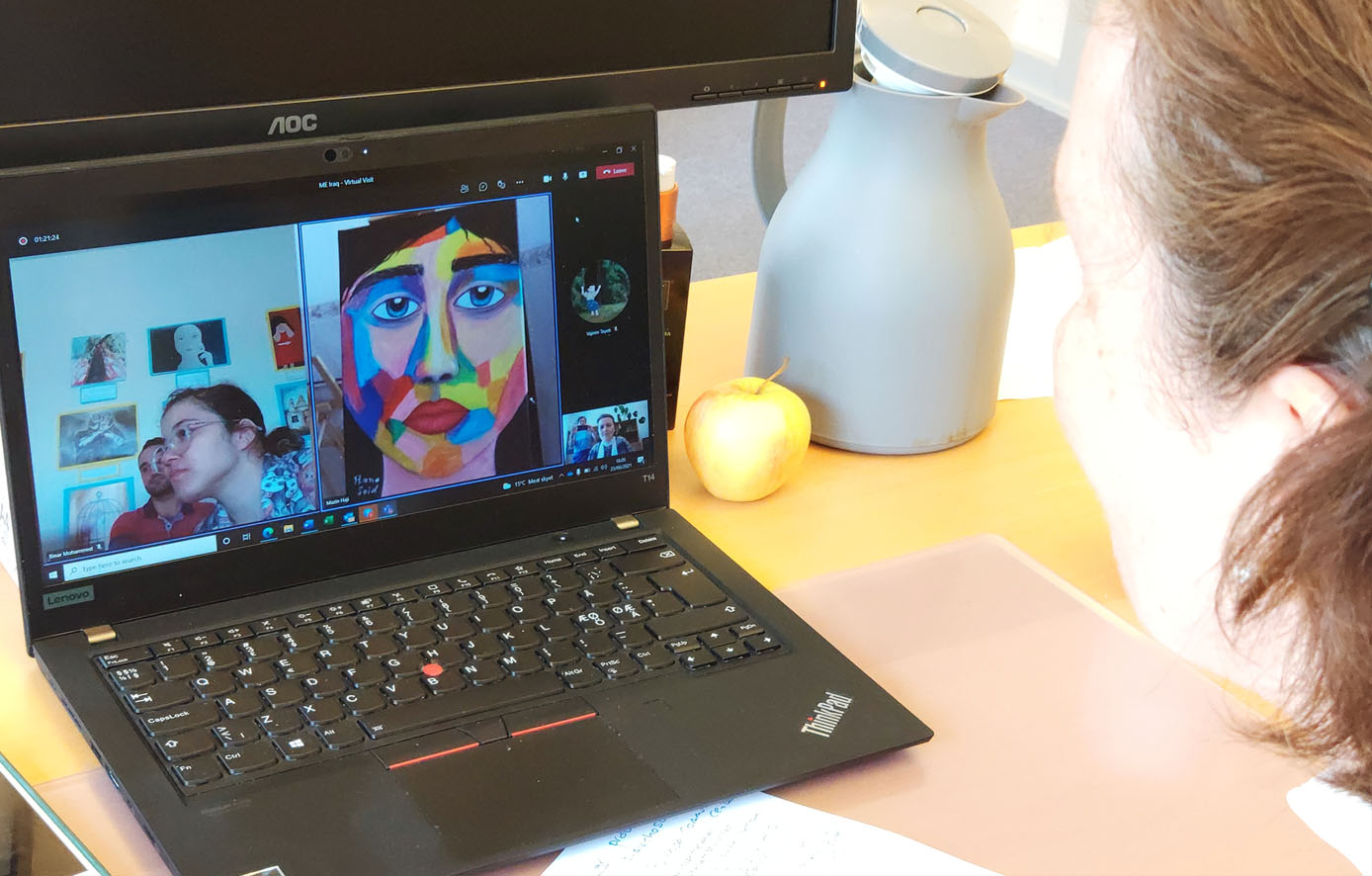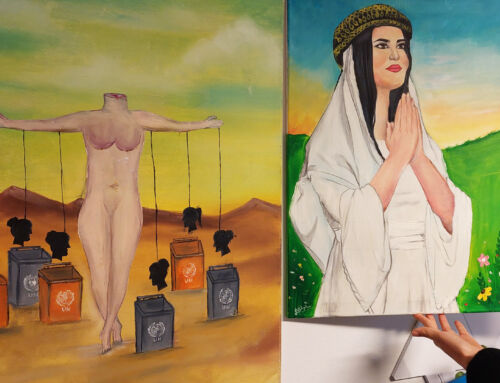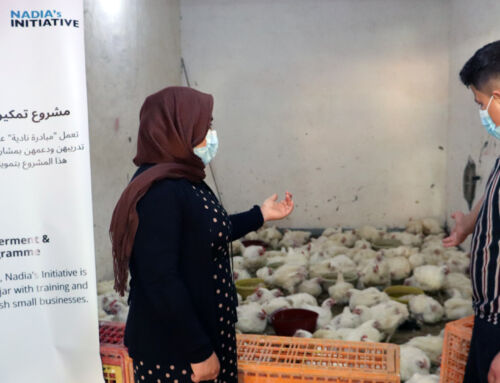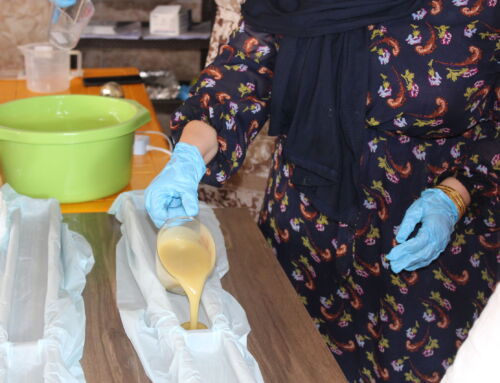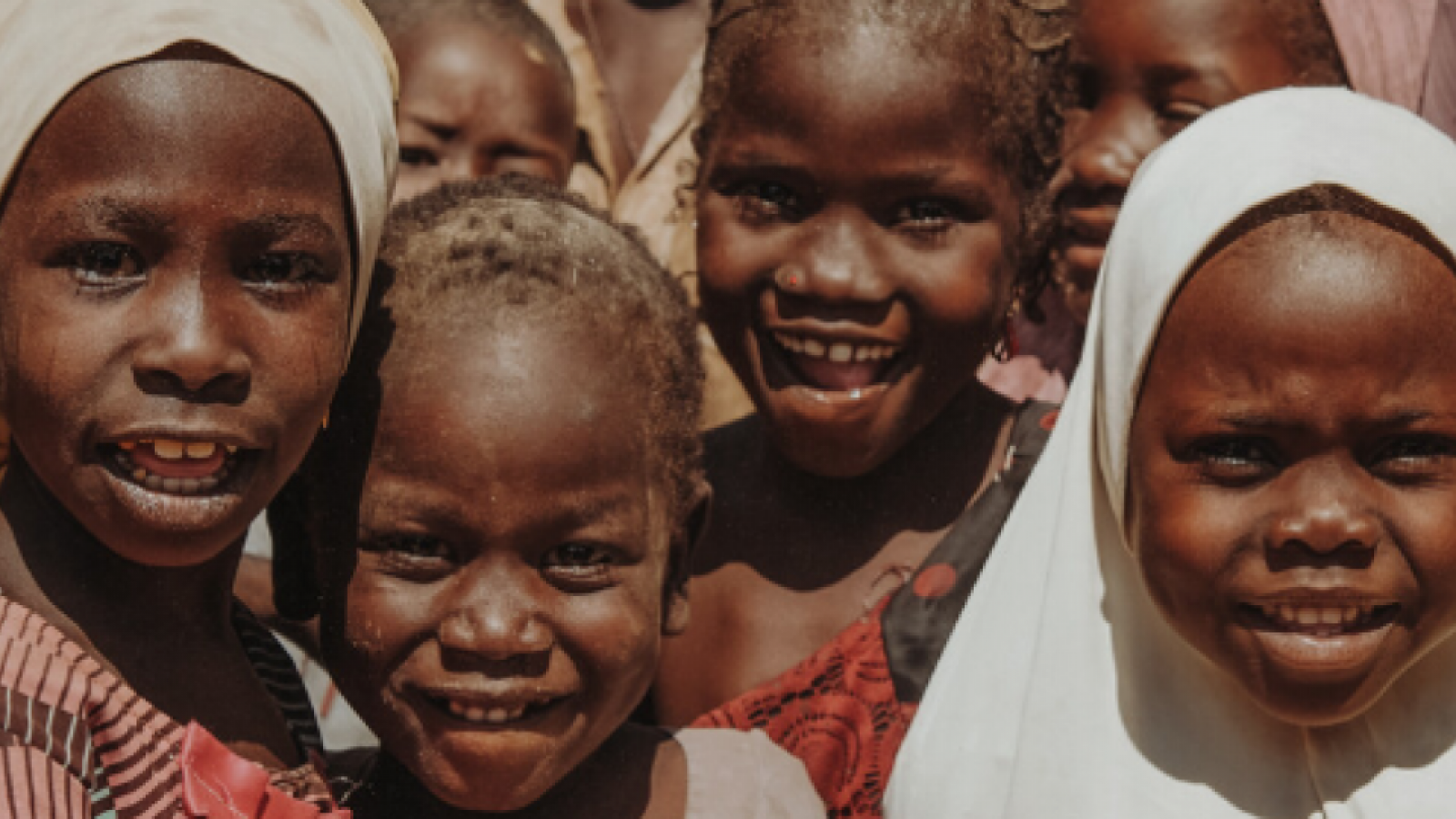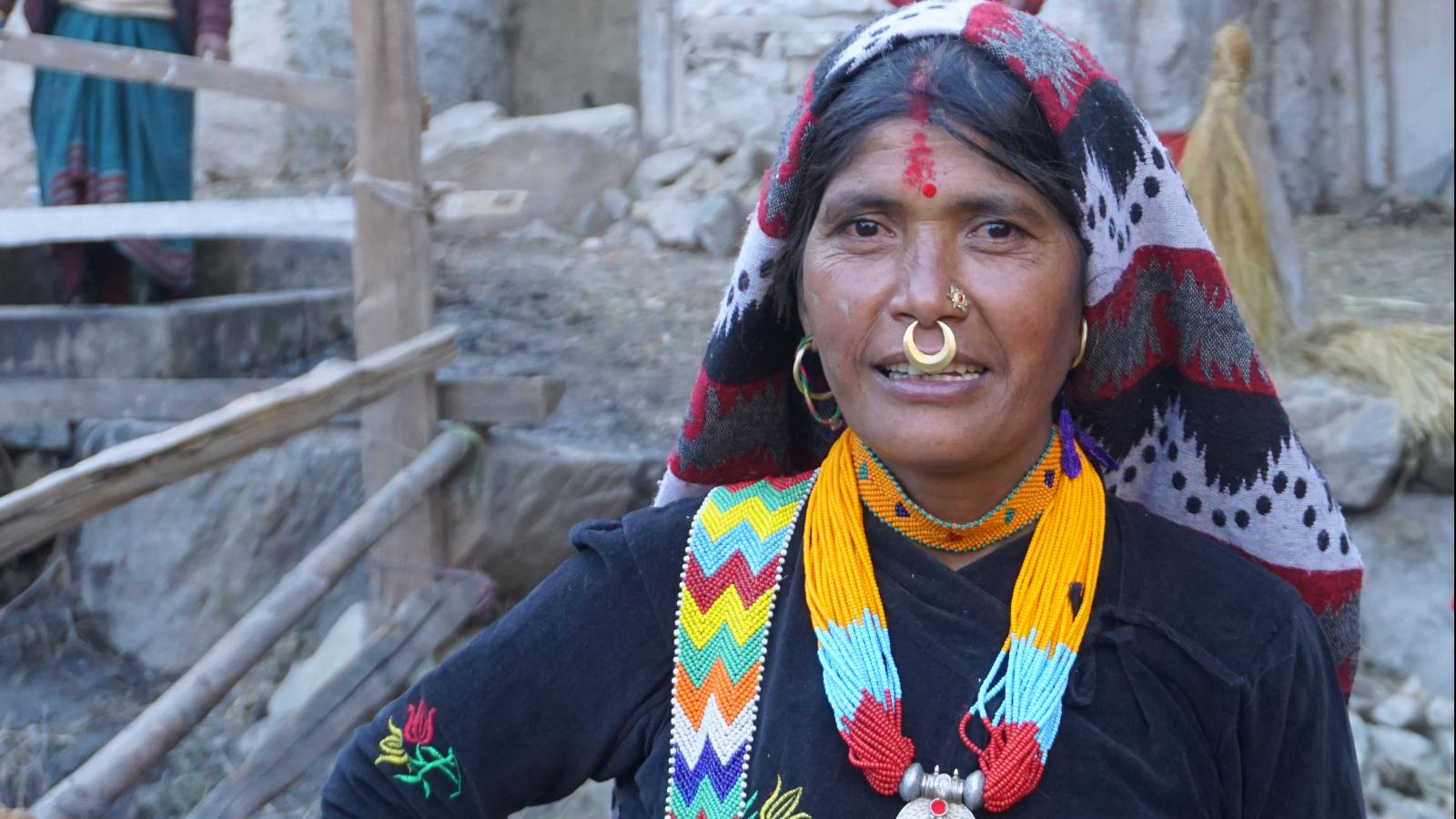Managing Director Betina Gollander-Jensen was both moved and inspired when, in a virtual tour of the ISIS-ravaged Sinjar, she met recipients of the help of Mission East.
“I have had a fantastic meeting with employees and beneficiaries in Sinjar!”
This is what Managing Director Betina Gollander-Jensen says after a four-hour meeting over the online service Teams.
‘They had the camera with them, so I actually felt like I was present. Both in a painting workshop for traumatized women and on a tour of Sinjar, where I visited a small shop and took part in the distribution of hygiene items and protective equipment against Covid-19.”
Betina Gollander-Jensen is used to travelling in project areas, but for obvious reasons cannot travel the world because of the corona pandemic. But her experience allows her to quickly level with the people she meets and read their reactions.
Captured by ISIS for four years
The “journey” began in a three-day painting course for women traumatized after being captured by the terrorist movement ISIS. By painting, women can express feelings that it’s otherwise hard to communicate by talking or writing about, she explains.
“Inside the room sits a group of 10-15 young women who tell me one by one that they have been captured and sexually exploited by ISIS and now need to process all the terrible experiences.”
“It was powerful! Here they sit and speak of something so cruel, while they paint beautiful pictures of flowers and birds. I can’t believe humans have lived in captivity for up to four years like this! The most beautiful young women!
At the same time, Betina Gollander-Jensen can see that some people sit nervously and wring their hands or almost manically stroke their hair.
“They’re not doing well. A 19-year-old girl said she had been captured by ISIS for two months and that her father and two brothers were still trapped by the terrorist movement. She was now left with a mother and a couple of brothers in charge of supporting the family. Through Mission East, she had received a baking course and was very grateful for the support.”
Got help starting their own businesses
Through the camera, Betina Gollander-Jensen also went to the city of Sinjar.
“It made a big impression on me. No trees or shrubs, it was completely bare, just sand and walls,” she says.
Before ISIS invaded the area in 2014, 84,000 people lived in Sinjar. But during the movement’s terror, about 85 percent of the city was destroyed. But in the midst of the barren and devastated city, there were glimmers of hope:
“We also visited a woman who, with the help of Mission East, had started her own small business selling juice and cakes. She demonstrated how she decorated the cakes with whipped cream and orange pieces. That was really nice! Afterwards, she made a juice with chocolate stripes up and down the glass. I’d never seen that before!”
So even though you are sitting in the office in Denmark, do you feel that you have just been on a trip in Iraq?
“Yes, I am very inspired – not least because they took me around and let the camera run while they were driving on the roads.”
Distribution of hygiene items and provision of water
Together they also drove out to a poor family consisting of a husband, wife and five children who had lost their jobs and income due to COVID-19.
“They received a hygiene package with soap, washing powder, rubbing alcohol, masks, etc. and told us it made a huge difference to them.”
Along the way, the employees talked about the reconstruction work that Mission East is also doing:
“They explained that the water supply in the city was destroyed during the war. And that a big reason people move from an area is precisely a lack of water. Here, Mission East helps repair and restore water supplies so that people can move back and stay in their cities. That is what is urgently needed!”
Betina Gollander-Jensen continues her virtual tour of Mission East’s project countries. Next time she “lands” in Nepal.

